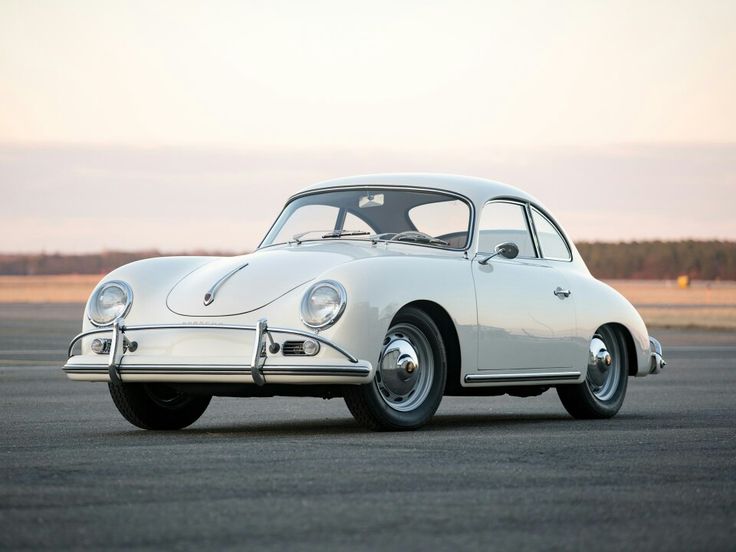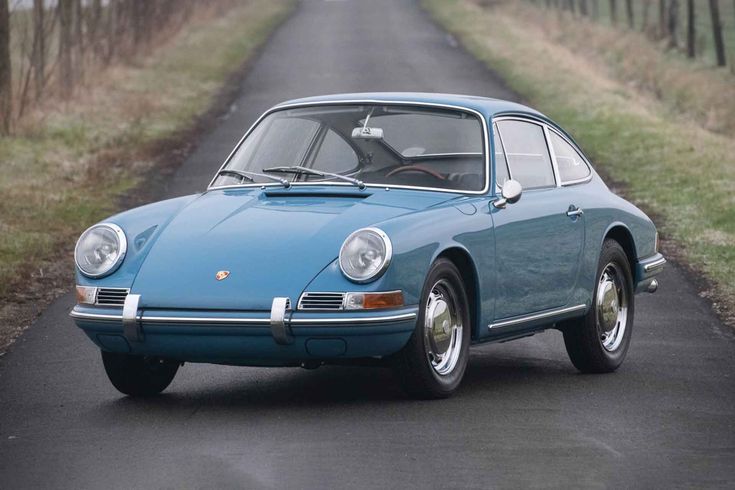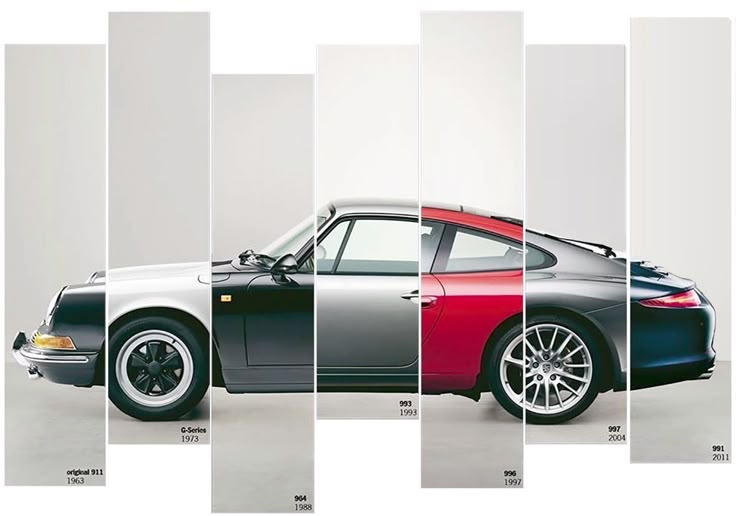Every luxury car or supercar you know today has a rich history behind it. The top brands in the world of automobiles go decades back in terms of origin. Their models have undergone years of evolution, hand in hand with advancements in technology.
The same is true for Porsche, a brand that is synonymous with excellence in design and groundbreaking engineering. One might as well say that the ‘P’ in Porsche stands for Performance, Precision, and Prestige. But the story of the brand is not just one story.
Pages in Porsche’s history book feature its very first model, which dates back to World War II years, which is followed by decades of domination in motorsport. And somewhere in there is the arrival of the beloved Porsche 911!
But hey, this was just a quick recap of the storied history of the luxury carmaker. In this article, let’s put on our history glasses and trace Porsche’s journey to becoming one of the most iconic automotive brands in the world!
Porsche’s Racetrack Origin

Years before the first-ever car with the brand name ‘Porsche’ was launched, the company (which later became Porsche) began as a consulting firm in 1931, which focused on engine and vehicle design.
At the time, the company was named ‘Dr. Ing. h.c.F. Porsche GmbH was formed by Ferdinand Porsche and his son-in-law, Anton Piëch, and Adolf Rosenberger in Germany’s Stuttgart.
The company’s big breakthrough came when Ferdinand decided to make a car that was agile, powerful, and a force to reckon with on the race track (In a nutshell, a super-competitive sports car). Years of work and dedication culminated with the arrival of the Porsche 356 in 1948. It was everything Ferdinand had planned, a lightweight, rear-engine sports car that was more about agility than it was about brute force and dominance.
The Porsche 356 is iconic for many reasons, including:
- It was the first-ever car to adorn the Porsche badge.
- It was the perfect sports car for its time, focusing on lightweight construction, smooth handling, and a rear-engine layout.
- Developed in Austria’s Gmünd, the Porsche 356 was developed using components of the Volkswagen Beetle.
Porsche’s early dominance on the racetrack:
- The tone was set for Porsche’s racing legacy with the brand’s first victory in Le Mans in 1951, along with victors in 1960’s Targa Florio and the Mille Miglia in 1956.
- In a nutshell, even before it became a household name among buyers, Porsche had established its reputation as a fierce competitor on the racing circuit.
The Arrival of the Legendary Porsche 911

Very few cars in the world define what a ‘sports car’ is than the Porsche 911. It is arguably the most iconic sports car in history (many would jump to remove the ‘arguably’ from this sentence).
So, we can’t talk about Porsche as a brand without mentioning the iconic 911, can we? Arriving in 1964, this beast of a sports car has undergone eight generations, selling more than a million units.
Signature Characteristic Traits of the Iconic Porsche 911:
- The legendary rear-mounted flat-six engine, which is made for the track.
- Rear-wheel driver dynamics that rewarded precision and cutting-edge driving skills.
- It is unmatched in delivering both speed and precision wrapped into one beast of a sports car.
The Porsche 911 became a timeless benchmark for sports luxury vehicles because:
- Comes in variants to suit a range of use cases, with the Porsche 911 Carrera for casual drivers to hardcore track machines like the Porsche 911 GT2/GT3.
- It went through a range of engineering evolutions without losing its core personality.
- The Porsche 911 has bossed tracks and circuits at rallies, endurance racing, and even the Dakar Rally’s off-road challenges.
Porsche’s Racing Dominance Continues: Le Mans AND Beyond
To describe Porsche’s reputation in endurance racing, all we need to mention is just one little fact. Even today, Porsche holds the record for the most wins at Le Mans by a manufacturer. The brand has bagged a total of 19 wins in the competition, cementing its name as the most decorated automotive manufacturer at the 24 Hours of Le Mans.
In fact, Porsche leads the second-best manufacturer at Le Mans (which is Audi at 13 wins) with a whopping margin of 6 wins.
Crucial Chapters in Porsche’s Le Mans Glory:
- In 1970, the Porsche 917 became the brand’s first car to register a victory in the overall category at Le Mans.
- During the 80s, the Porsche 956 and Porsche 962 were at the very top of the Group C era of endurance racing.
- Most recently, between 2015 and 2017, the Porsche 919 Hybrid won Le Mans three times in a row.
Becoming the most successful manufacturer at Le Mans has by no means been enough for the German brand. Via their Porsche Cup, the manufacturer is dedicated to uplifting and promoting racing at the grassroots.
Additionally, Porsche has achieved commendable success in racing competitions like the World Rally Championship, IMSA, Formula E, and GT Racing, as well!
Porsche’s Expansion: Via Racetracks to the Road
Through a series of tech innovations, Porsche managed to infuse their signature ‘race car technology’ into their road cars without cutting down on either comfort or usability. In other words, with a ‘motorsport DNA’ at the heart, Porsche makes luxe, comfortable, and smooth street cars, too.
Tech innovations and signature traits that have bolstered Porsche’s legacy:
- The Porsche Doppelkupplung (which translates to Porsche’s double-clutch transmission) offers seamless and swift shifts. It is now available in all Porsche models in the lineup.
- The PASM (Porsche Active Suspension Management) helps drivers strike the perfect balance between agile handling and ride comfort.
- Originally a race car manufacturing brand, Porsche has maintained that DNA. The brand’s EVs and SUVs also drive as if they belong on a racing circuit (anyone who has driven one would read and give a resounding YES to this!).
- Taking confident strides into the era of zero-emission driving, the Porsche Taycan, the all-electric sedan, carries the soul of the legendary 911.
Porsche’s Timeless and Recognisable Design
Now that we’ve talked at length about its ‘racetrack engine’ and ‘smooth handling’, let’s talk about another aspect that makes a Porsche instantly recognizable, the design language.
If we trace the cars we’ve mentioned in this piece, right from the classic 356 to the iconic 911 and the modern-day Taycan, there’s a signature consistency to be found among all these Porsche models.
It is visible in some of its elements, like:
- Aerodynamic design and focus on weight optimization.
- Rounded headlights, sloping rooflines, and a wide, haunched build are also signature ‘Porsche’ design elements.
- On the interior, Porsche balances the analogue and digital tech features.
- Porsche models are known for being driver-focused, featuring a minimalist but ergonomically comfortable cabin.
Porsche’s Legacy: To be Continued…
With a legacy as rich as it can get for an automotive maker, Porsche is in no hurry to hang up the proverbial boots. As the world of automobiles shifts towards electrification and autonomous cars, Porsche is adapting but without letting go of its charm and heritage.
In fact, the Porsche Taycan and the Macan EV are leading the brand’s charge in the world of electric mobility. Furthermore, Porsche is also investing heavily in synthetic fuels to keep internal combustion relevant in a world aiming to go carbon-neutral.
But for Porsche, performance is paramount (and it will continue to be in the many decades to come). Porsche has established itself in the market as more than just a brand. It is a philosophy that emphasises a rewarding driving experience.
A philosophy that believes that the racetrack and our city roads for daily commute are not two completely distinct worlds. They are, in fact, interconnected. And a delightful, agile, and comfortable ride should stay constant in both of them!

